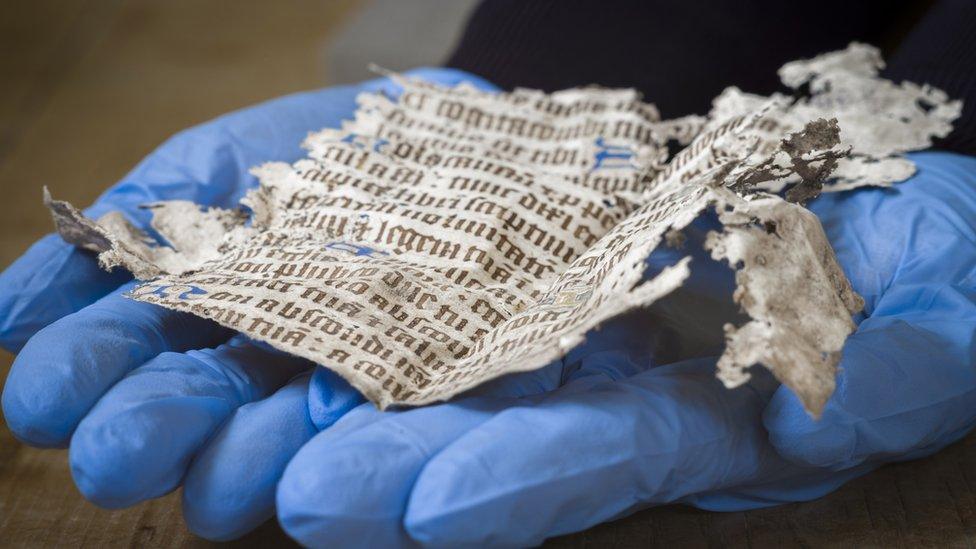Oxburgh Hall's Victorian garden adapted for climate change
- Published
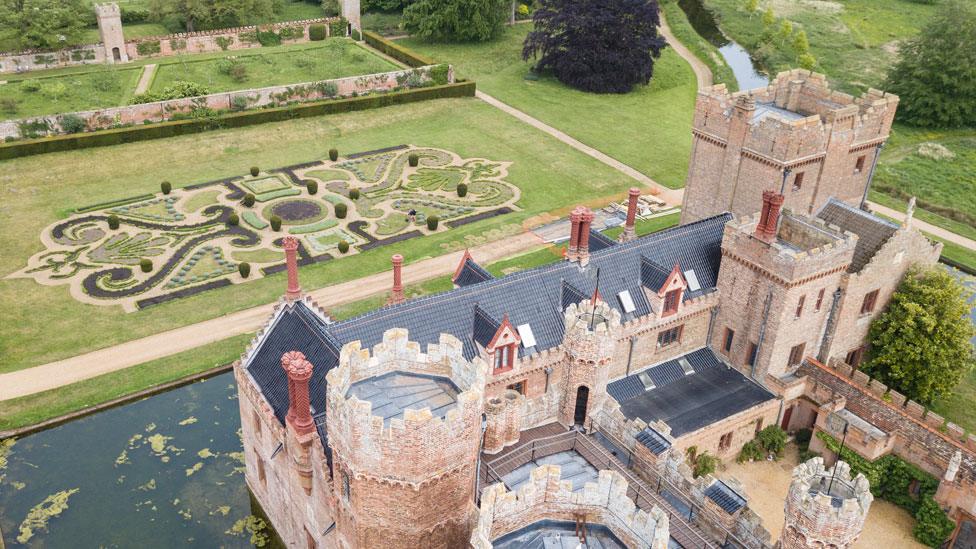
The Parterre Garden was laid out in 1848 and was known to the Bedingfield family as the French Garden
A 19th Century garden belonging to a Grade I-listed 15th Century manor house is to be adapted to help it cope with the effects of climate change.
Changes to the Parterre Garden at Oxburgh Estate, Norfolk, include removing the box hedging.
Senior gardener Dea Fischer said its replacement needed to tolerate "dry, exposed conditions".
The National Trust said the estate had just experienced its longest period of drought ever recorded.
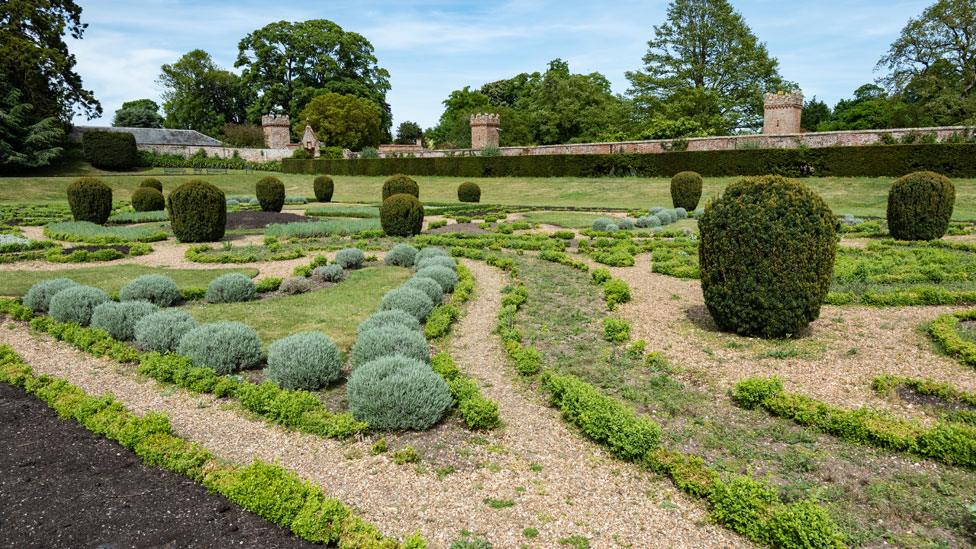
Its box hedge has been struggling due to a fungus known as "box blight"
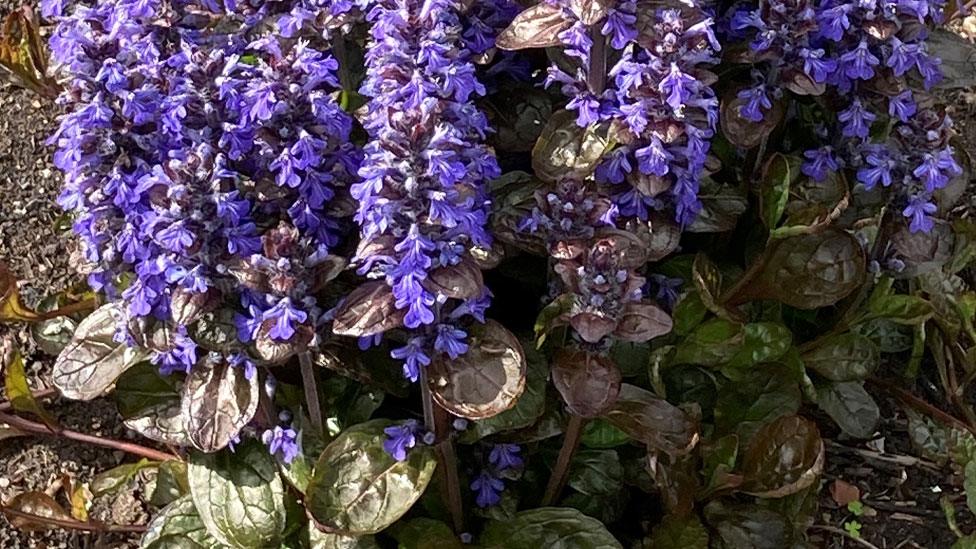
This blue perennial plant is one of a number chosen to replace 7,000 annuals previously planted in the parterre
The parterre was created in 1848 and needs a major refresh every 30 to 40 years.
It was last fully refurbished in 1972.
Its box hedging is under threat from a fungus known to gardeners as "box blight", external and will be replaced by Euonymus japonicus microphyllus.
Ms Fischer said this followed a two-year hedging trial at Oxburgh, which tested three alternative species.
The Euonymus "tolerates the light, sandy soil, as well as dry, exposed conditions here", she said.
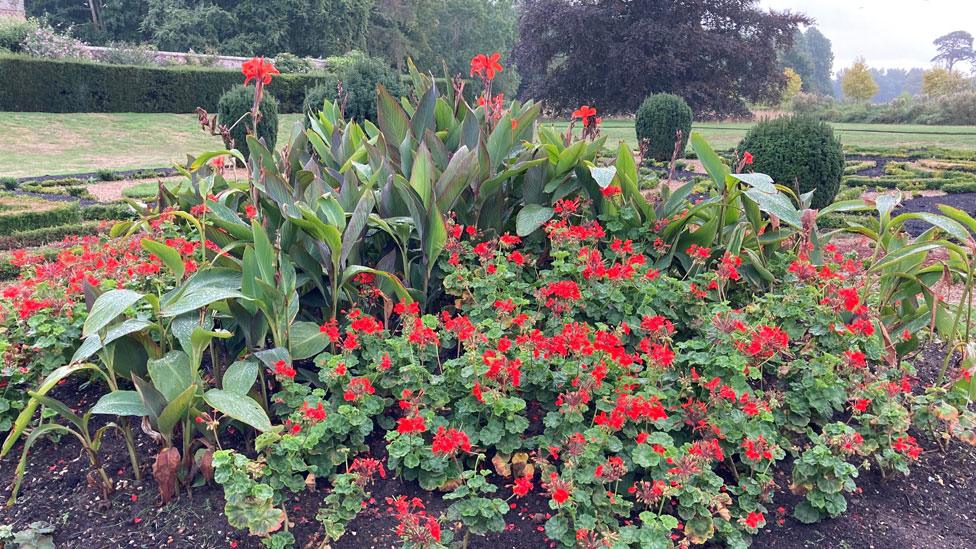
But it is not all change - the central medallion will continue to be planted with the traditional red Canna indica lilies and Pelargonium Paul Crampel
The National Trust's Plant Conservation Centre, external will propagate 6,000 new plants and they will start arriving in spring 2024.
The team also plans to replace the parterre's 7,000 annual plants with perennials to provide a year-round display.
Ms Fischer said she had chosen plants to reflect "the heraldry colour palette of the Bedingfeld family who have called Oxburgh home for more than 500 years".
But its central medallion will planted with the traditional red Canna indica lilies and Pelargonium Paul Crampel, which the hall's records show has been propagated at Oxburgh since Victorian times.
The National Trust said climate change was having "a serious impact" on the estate and its longest period of recorded drought was from summer 2022 to May.
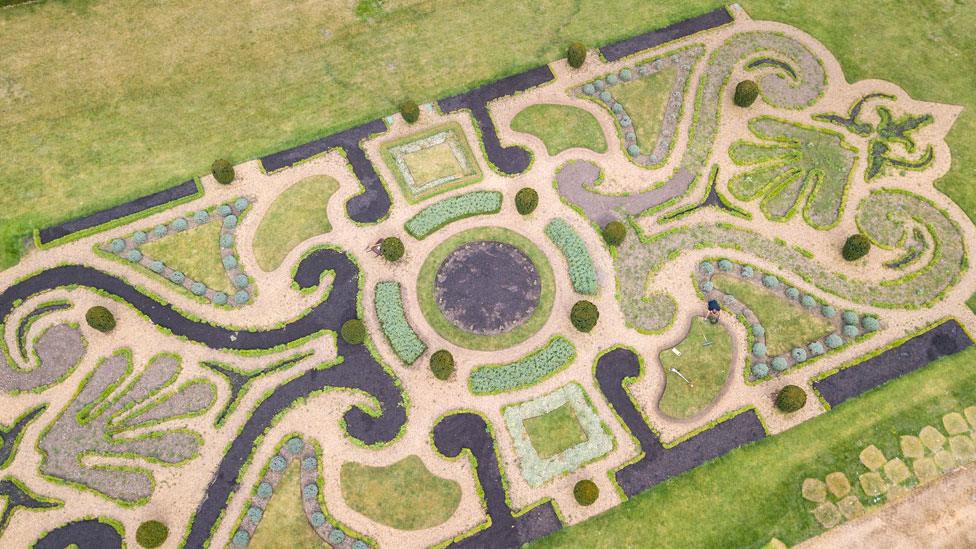
An archaeological dig ahead of the garden's restoration revealed Civil War pistol shot balls

Follow East of England news on Facebook, external, Instagram, external and Twitter, external. Got a story? Email eastofenglandnews@bbc.co.uk, external or WhatsApp us on 0800 169 1830
Related topics
- Published29 June 2022
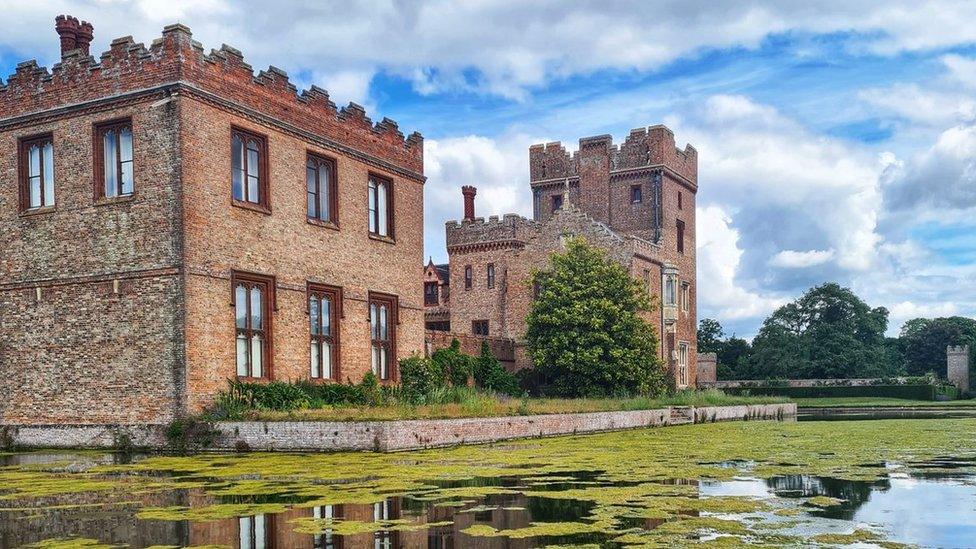
- Published12 August 2021

- Published5 March 2021

- Published17 August 2020
